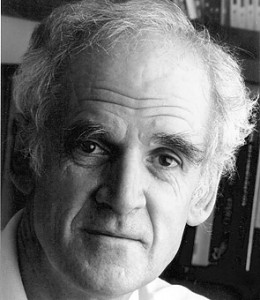Your doctor still probably believes that cholesterol in the diet translates into cholesterol in the bloodstream, that there is “good” and “bad” cholesterol, and that “bad” cholesterol bears a statistically significant relationship to heart disease. Every one of these propositions is false.
I refer you to an excellent article by Matt Ridley “cholesterol is not bad for you”, who writes:
Cholesterol is not some vile poison but an essential ingredient of life, which makes animal cell membranes flexible and is the raw material for making hormones, like testosterone and oestrogen. Your liver manufactures most of the cholesterol found in your blood from scratch, and adjusts for what you ingest, which is why diet does not determine blood cholesterol levels. Lowering blood cholesterol by changing diet is all but impossible.
Nor is there any good evidence that high blood cholesterol causes atherosclerosis, coronary heart disease or shorter life. It is not even a risk factor in people who have already had heart attacks. In elderly people — ie, those who have the most heart attacks — the lower your blood cholesterol, the greater your risk of death. Likewise in children.
From the very first, the studies that linked the ingestion of cholesterol and saturated animal fats to cardiovascular disease were not just flawed, but tinged with scandal.
It is well worth reading the rest. What I have to say here reflects upon the course of this great fallacy. The cholesterol scam bears a strong relationship to the anthropogenic global warming scam.
1) it is propagated by scientists on a non-scientific mission.
2) it is believed because it plausibly explains an observation (increasing global temperature [for a time], increasing heart attacks from smoking in the 1950s and 60s). It taps into large anxieties about too much wealth, too much happiness, in western societies. There must be sin somewhere, and the public is ready to flog itself in the cause of a secularized idea of God, uh, I mean Good.
3) the causal relationship is weaker than first supposed; the research is found to be sloppy, the facts have been fudged, subsequent studies do not fully support the original claims, nevertheless the orthodoxy is promulgated all the more harshly for being doubted.
4) by now, powerful economic and ideological interests have taken hold. They supply an ongoing source of funds and opinion to ensure the perpetuation of the alarm: in the case of cholesterol, the margarine industry, the pharmaceutical industry, and the medical establishment, and in the case of AGW, the tribe of bureaucrats and leftists who seek to control markets, whose god of Marxism had failed, and who needed a new god (Gaia) to justify their rule.
5) The skeptics who have patiently argued on the basis of facts that the science of each phenomenon was weak, are ostracized by the opinion establishments of medicine and global warming. Cranks, but the cranks are right and the orthodox priests and Levites are wrong.
6) Eventually, after fifty or sixty years, the subject of discussion just changes. In the case of cholesterol, the evidence gets weaker and weaker, and the problems caused by too much sugar consumption (obesity, diabetes), caused in part by people not eating enough fats and meats, reaches a stage where it can no longer be ignored.
7) the retreat of the orthodoxy is covered by a smokescreen of fresh concerns for some other catastrophe. No admissions of error or apologies for wrecked careers and following bad science are ever issued. Time flows on, bringing neither knowledge nor greater understanding of the role of folly in human affairs.
8) stages 6 and 7 have been reached in the cholesterol cycle; they are beginning in the anthropogenic global warming scam. Fifty years from now, there will still be clanking windmills in the North Sea, but whether they will be still linked to a power grid is less likely, and whether anyone will pay attention is doubtful. The lobbies that keep them there, however, will still exist.
These long term fashions in intolerant error should cause all people to question the intelligence and wisdom of the human species. I call these schools of thought and action “phologiston”, after a disproven but thousand-year-old Greek theory of what fire was.
There are two major sources of metaphorical phlogiston in modern society: the climate people and the medical profession.
Phlogiston is the ancient term for a substance that was imputed to exist in all things that prevented combustion. Phlogiston was necessary in a Greek idea of a universe. Without phlogiston, everything would burn, because it was in the nature of all things to seek to rise from the four sub-lunary elements below (earth, air, fire , water) to the empyrean , the zone beyond fire, outside the orbits of the five planets around the earth. This was the hidden metaphysical postulate, which they never questioned. (All summaries of obsolete world views make them look ridiculous; they were not, they were merely in error).
If all things naturally wanted to burn up, then something must prevent combustion, and this substance was called “phlogiston”. From premise to assumed force. No one questioned the premise for more than a thousand years.
So when Priestly and Lavoisier said that combustion was a process of oxygenation, and proved it by showing that certain things gained weight when burned, phlogiston lost credibility to a newer, chemical idea of burning.
Note that phlogiston is an idea predicated on a larger world view, and is introduced to explain the operations of that world view. That things do not normally burn is something that needs explanation in the Greek world view.
Correspondingly, in the modern world view in North America and Europe, the fact that needs explaining – I propose for your consideration – is “why are we so rich?” and the answer we get out of post-Christian secularized guilt is: “We must have done something wrong.”
The assumption of a secularized guilt is the underlying assumption. Heart attacks are punishment for overindulgence in highly nutritious food; global warming is punishment for our thoughtless depredations upon Gaia. A future perspective may laugh at the modern human propensity to consider prosperity and health as occasions for guilt, just as we denigrate the Greeks for assuming all things want to burn their way to the empyrean sphere of a geocentric universe.
I tell you folks, the longer I live, the more truth I see in Chesterton’s remark – attributed to him – that when people cease to believe in God, the more likely they are to believe any nonsense that comes their way. Save your beliefs for absurdities like the Christian religion, and keep your mind clear to detect the bullshit constantly propagated in the material world. It will not lack for targets, I assure you.









